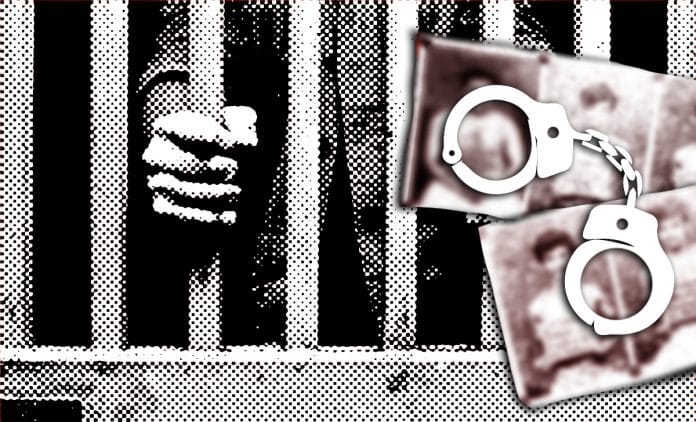The Centre is set to release the National Registry of Sexual Offenders Thursday. The database will maintain records of convicted offenders and be only available to law enforcement agencies.
ThePrint asks— India to get first sex offenders’ list: Answer to rape culture or limiting room for reform?
Sex offenders’ registries act as second prison sentences, reducing chance of rehabilitation
 Enakshi Ganguly
Enakshi Ganguly
Co-founder and adviser, HAQ: Centre for Child Rights
The sex offenders’ registry (SOR) is yet another example of the politics of illusion that we are seeing— it is just a knee-jerk solution to deep rooted problem.
According to the NCRB, in 94.6 per cent of the reported cases of rape in 2016 the perpetrator was either from the family or known to the victim. In some of these cases, the victim turns hostile after a while. Knowing that this person will be on the SOR, combined with the fear of the death penalty for offenders of child rape, will affect disclosure and reporting rates.
Given that the age of consent in the POCSO Act is 18 years, all sexual activity below that age constitutes rape –including those that might be consensual in nature. Even today, many young men are arrested in what is referred to as ‘love cases’. What would it mean for all such ‘boyfriend-offenders’ ending up in the SOR? What would be the impact on their lives?
HAQ: Centre for Child Rights and Macquarie University, Sydney have just released a global analysis of SORs based on data from countries that already implement it. The findings show that there is no statistically significant difference between recidivism for registered sex offenders versus those not on a registry. In fact, a SOR may even increase recidivism in other crimes, as they force isolate offenders from opportunities and their community, often compelling them to live a life of crime. Offenders suffer residency restrictions, employment issues and social isolation and stigmatisation, which acts as a ‘second prison sentence’. Families often suffer stigmatisation and exile when their family members are placed on registries. It also hinders a sex offender’s ability to re-integrate into the community and therefore negatively affects their chances of rehabilitation. The study shows SORs increasing racial and other profiling.
So, India will now have to deal with yet another ill-thought out measure.
Name on list might deter people and prevent rapes
 Asha Pandey
Asha Pandey
Founder, Nirbhaya Jyoti Trust
The offenders’ registry can be immensely useful in the future. So far, we’ve seen only women suffering because of the sexual abuse they are subjected to. Even if they manage to escape alive, their entire life gets tarnished because of the event. They lose their jobs and some families take their child survivors out of school. The rapists, on the other hand, go on to live their lives. Many of them are never caught. If and when they do get caught, they are easily let off after some time. This is extremely unjust.
At the same time, the system must ensure that not even a single innocent individual finds their name in this registry. This would completely ruin the innocent person’s life and is not acceptable. As long as we can ensure that only those who have been convicted with enough evidence are named in this registry, can the exercise be useful. I can’t guarantee that this will definitely help prevent rapes, but it is a possibility.
Once rapists see that their life will come to a standstill if their name is on the list, it could inhibit them and thereby prevent rapes. The police must do their job honestly in this regard and ensure that those convicted of rapes have enough evidence against them.
Also read: Haryana is gang-rape capital of India, but its politicians just don’t seem to care
Need of the hour is to improve our prosecution machinery, not make registries
 Shruthi Ramakrishnan
Shruthi Ramakrishnan
Independent legal researcher working with child rights
With the NCRB all set to roll out the first National Registry of Sexual Offenders in India, it is time to ponder whether this is really the answer to India’s rape problem?
The government rationale is that this registry would not only aid law enforcement with keeping a tab on past offenders but will also aid the public in safeguarding themselves. While it sounds appealing, it is important to remember that the registry can only tackle those offenders who are actually convicted by a court. Livemint estimates that nearly 99 per cent of sexual assaults are not even reported. Even amongst the small percentage of rape cases that are actually reported, the figures do not read well. A whopping 87.7 per cent of rape cases are still pending before courts and amongst those disposed, only 25.5 per cent cases result in a conviction [NCRB Crime in India, 2016]. It is clear from the above figures that a majority of sex crimes go unreported and unpunished in India.
Studies from countries which have had the registry for several years such as the USA – all conclude that these registries simply do not work. They have neither shown to reduce the rate of sex crimes nor have they shown to reduce the rate of re-offending [Amanda Agan Study, 2008]. On the contrary, these studies go on to show that with the numerous restrictions and prohibitions placed on the offenders listed on the register, former convicts return to a life of crime.
In the backdrop of a crippled criminal justice system, it is time to ask ourselves whether the sex offender registry is really what we need. Instead, the need of the hour is to improve our investigative machinery, bolster our prosecutions, and ensure that no crime goes unpunished.
Sex offenders’ registry must be made public because society only remembers victims
 Ranjana Kumari
Ranjana Kumari
Director, CSR
We had requested for a sex offenders’ registry after the ‘Nirbhaya’ case. But the registry should be made public. This is important because after every rape case, it is the victim who is subjected to stigma and shaming. Especially in cases where the victim is from a lower-middle class family. Society forgets who the rapist was, but remembers the victim’s identity. The neighbourhood of the rapist isn’t aware that they have a rapist living among them, and that is a problem. The whole rationale behind demanding this registry was that it must be made public. Since we are not looking at a registry of alleged cases but that of convicted individuals, this is a much-needed move.
While there are chances of false conviction, these are only 1-2 per cent. Besides them, the convicts must be named and shamed. Not only will this be an advantage to society, but future trials of these repeat offenders will be limited. Reformation is important. But reformation of such hardcore criminals is a lot like a Cinderella story. Our system isn’t inherently geared towards reform. Our prisons are in pathetic conditions. So, there must be some sort of evaluative measure through which we can see if the convicts named in the registry are reforming. Once they have reformed, perhaps we can contemplate removing their name from the registry. But not before that.
Must ensure both tracking of offenders and their rehabilitation goes hand in hand
 Monica Arora
Monica Arora
Advocate, Supreme Court
I welcome the sex offenders’ list and their profiling. Sunil Rastogi, a tailor from Uttar Pradesh, reportedly assaulted hundreds of minor girls. This fact about him came to light only after he had served his sentence for another rape case. If we had a registry of sexual offenders, then we could have prevented this from happening.
That being said, of course, there are other issues such as in cases where the sexual offenders is a family member—especially in the case of minors. These cases often go unreported. Awareness about the POCSO Act is not that great among Indians. Judicial inefficiency is another major hurdle. When these convicted individuals come back to society, people around them don’t know of their past. While I agree that this data shouldn’t be made available in the public domain, it should definitely be maintained and made accessible to investigative agencies.
Punishment, rehabilitation, reintegration need to work simultaneously. Many times, these offenders are just in their teens and have their entire lives ahead of them. So, we need to ensure that both tracking of these offenders as well as their rehabilitation goes hand in hand.
Police profiling criminals on list and taking arbitrary action not a far-fetched fear
 Sanya Dhingra
Sanya Dhingra
Reporter, ThePrint
Arbitrary, prejudiced action by the police has only increased in India in the last few years. In such a communally divided milieu like ours where people are known to often embrace their religious and caste identities over their professional identities even as public servants, to arm them with a readymade list of offenders, which would betray the offender’s religious and caste identities, spells danger.
We are living in times when arbitrary encounters by the police and the rhetoric of ‘love jihad’ have begun to enjoy social sanction instead of condemnation. So, profiling of criminals whose names appear on the list and taking action against them arbitrarily is not a very far-fetched fear. Who is going to question the intention of the police for picking up a Muslim convicted rapist from his house on suspicion that he could prove to be a danger to the Hindu girls living in the area? Who is going to stop the politics that happens over such a case from thwarting any scope of justice for such a man?
Nobody can dispute the fact that cases of sexual violence against women in India need to be addressed immediately. But let’s face it: for most judges, lawyers, police personnel, gender sensitisation is still an alien and peripheral concept. By ignoring those fundamental, but arduous, measures in reducing crimes against women and ensuring smoother justice for victims, the government may be missing the forest for the trees
By Fatima Khan, journalist at ThePrint. You can follow her on twitter @khanthefatima.






